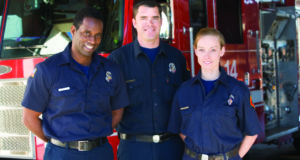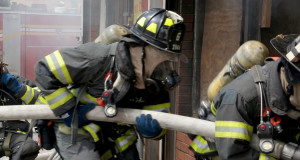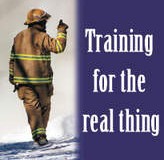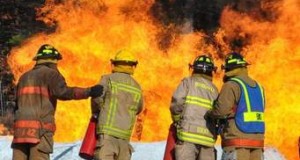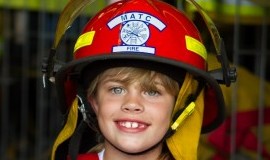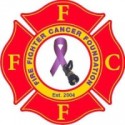Today's firefighters face a multitude of situations daily that require knowledge, skills, and abilities far beyond those required to fight fires, provide medical care and rescue entrapped victims. Many of those situations require skills more akin to a social worker than that of a firefighter.
Read More »Training and coaching
What does a future fire officer look like?
What traits do you believe make a firefighter a good candidate to promote to Company Officer? I asked several fire service colleagues the question: What traits to you look for in firefighters as potential company officers? Two of those colleagues, Fire Chief Bud Backer and Division Chief Susan Tamme, provided some really good insights back to me via e-mail. I could only use a few of their comments in the finished article, but the rest were so good I just couldn’t leave them on the “cutting room floor.”
Read More »Planning Your Fire Service Career
Congratulations! You’ve completed your probationary period with your fire and EMS organization and with it all the training and development activities prescribed by your department. You’re now, no doubt, chomping on the bit to advance in your chosen career, but where do you start?
Read More »4 Steps for Better Firefighter Training Exercises
People say that we learn from our mistakes. Not necessarily true according to research. That research shows that we’ll act according to the “model” that our brain finds when we confront a situation. So the question becomes: do you want them to come up with a positive model or a negative model?
Read More »Homegrown Fire and EMS Leadership
Chief Eanes laid the foundation for the department's "homegrown" leadership when he assembled a group of fire officers from across the ranks of the department in 1985 to begin developing an Officer Development Program (ODP). The ODP—whose target audience was firefighter who aspired to promotion to the rank of Company Officer and incumbent Company Officers—was launched only a few short years later and would continue to be nurtured through the leadership of Eanes’ successors as Fire Chief.
Read More »Why On-line Training is the Future for Fire Service
The fire service in general has been slow to adapt to new work methods, apparatus, and technologies. (Yes, I'm going to say it, "200+ years of Online studenttradition, unhampered by change.") The technology is here today that can allow an individual to obtain the necessary knowledge of firefighting to successfully complete the knowledge-based portion of certification testing. What's not here today is the widespread acceptance that an individual can learn to be a firefighter using a computer or tablet. Why is that?
Read More »The Influence of Training
I believe it is safe to say there are not many emergency services personnel who would deny that training is paramount to successful operations on incidents. However, there are some whose actions would show otherwise.
Read More »Developing Your Firefighters
Another thing I've never understood is "down time". What is this "down time"? Do these firefighters and officers know their job functions, their response district, the fire risks in that district, etc., so well that there is no need for training, drilling, touring, pre-planning, etc.? As a Company Officer, how much time are you devoting each tour-of-duty to those four important human capital development tasks?
Read More »CampHERO Teaches Girls “Can Do”
Behavioral research shows that by the time they begin their school years, young girls and boys already have some pretty “defined” ideas of what men and women can or cannot do, especially regarding jobs.
Read More »Good Guys and Gals Wear a Mask–And the Rest of Their Gear
I’ve come to realize that firefighters dying in fires is our very own inconvenient truth in the fire service…In spite of all we know about fire, in spite of all of the advances that have been made in technology, in spite of all of the advances in the science of fire prevention and suppression, in spite of the billions of dollars spent—firefighters still die.
Read More » Fire & EMS Leader Pro The job of old firefighters is to teach young firefighters how to become old firefighters!
Fire & EMS Leader Pro The job of old firefighters is to teach young firefighters how to become old firefighters!

